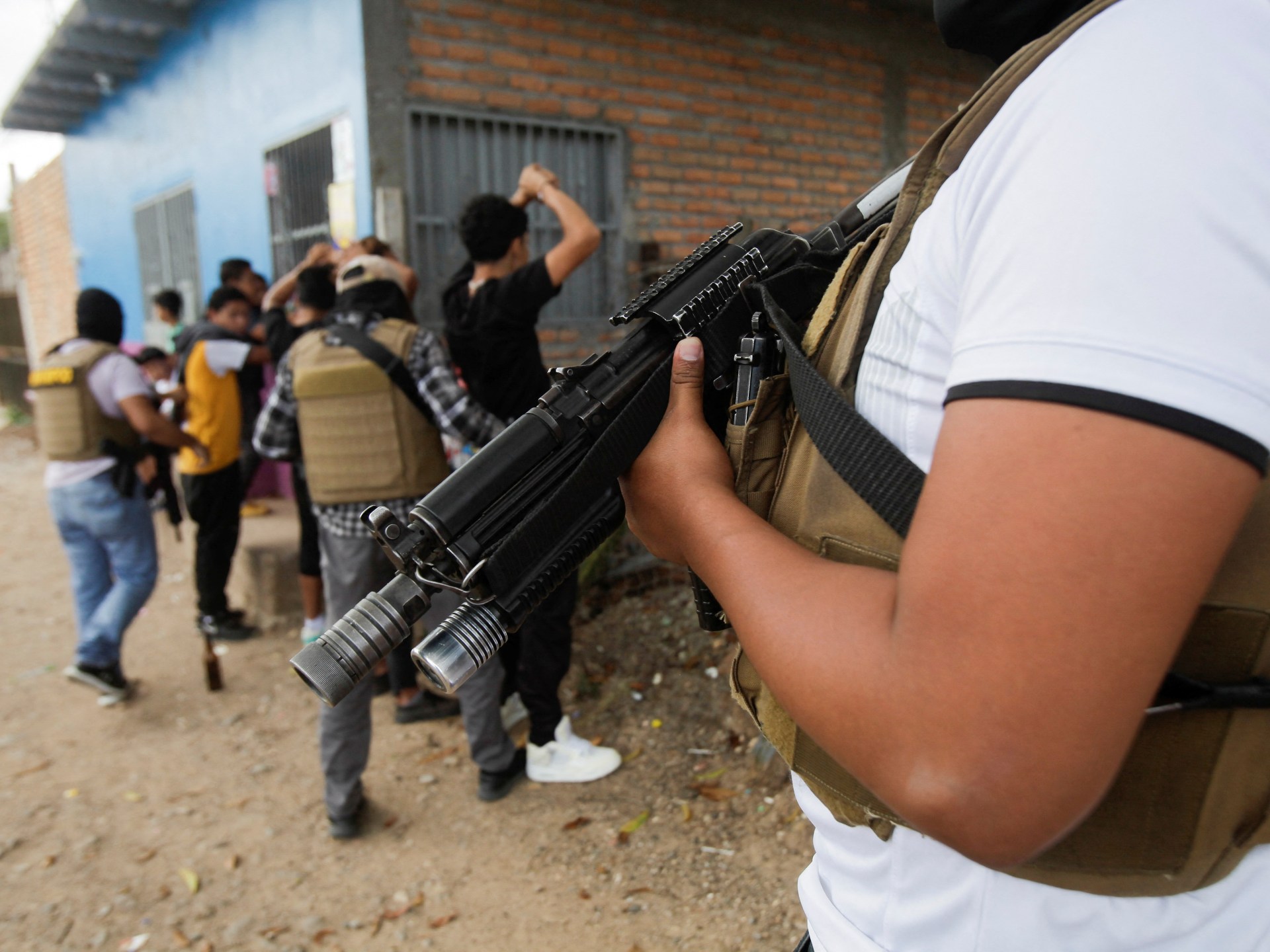The operation, on paper, appeared to be a typical government crackdown on drug traffickers.
In late 2024, more than two dozen masked officers descended on an alleged narcotics lab on the outskirts of San Pedro Sula, Honduras, where they found materials for processing cocaine and automatic weapons.
There was only one problem: The evidence, including the firearms and cocaine, seems to have disappeared from the public record.
That is according to a Honduran prosecutor specialising in cases of state corruption who spoke to Al Jazeera on condition of anonymity, for fear of professional reprisal.
The prosecutor believes there is a strong possibility the police may have kept the weapons and drugs to resell them on the black market.
Experts say questions of corruption and abuse have come to typify Honduras’s “state of exception”, an emergency declaration that has suspended certain constitutional rights while granting greater powers to the military and police.
Such measures are meant to be temporary. The state of exception was first declared in December 2022, in the name of fighting drug traffickers and gangs.
But it has been extended at least 17 times since, often without the explicit approval of Honduras’s Congress.
For human rights observers, the continued renewals have raised alarms over whether the state of exception is being used as a shield for law enforcement excesses.
In May, for instance, the United Nations High Commissioner for Human Rights (OHCHR) urged the Honduran government to “put an end” to the state of exception, citing systematic abuses at the hands of security forces.
“The implementation of the state of exception has led to serious human rights violations, including extrajudicial killings, forced disappearances, arbitrary detentions and raids without judicial oversight,” the UN office wrote.
It added that Honduras’s National Commission for Human Rights (CONADEH) had arrived at similar conclusions.
Joaquin Mejia — an investigator with the Team for Reflection, Investigation and Communication, a Honduran human rights advocacy group — believes such abuses are a trend under the state of exception.
“The biggest negative effect is what the National Commission for Human Rights registered: that, from December 2022 to December 2024, 798 complaints at the national level over human rights abuses are attributed to state security forces,” Mejia said.
